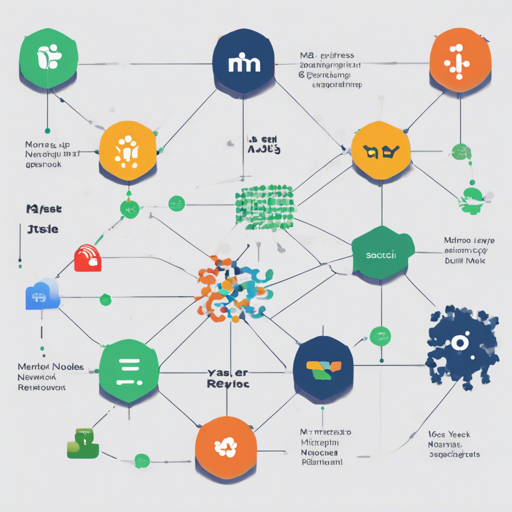Welcome to the world of Yasei, a social networking platform crafted with the powerful MERN stack! In this article, we’ll walk you through the essential steps to get Yasei up and running smoothly. Excited to dive in? Let’s get started!
Step 1: Configuring the Server
First, we need to set up a configuration file. This file will hold vital information for our application, such as database connection details and secret keys for JSON Web Tokens (JWTs). Follow these instructions:
- Create a file named
config.jsin the server directory. - Within
config.js, copy and paste the following code:
module.exports = {
MONGO_URI: MONGO_URI,
SECRET_KEY: 'PRIVATE_KEY' // Will be used for our JWTs
};Make sure to replace MONGO_URI with your actual MongoDB URI and set a strong `PRIVATE_KEY` for your application’s security.
Step 2: Installing Dependencies
Next, you need to install all the necessary dependencies for both the client and server. This will ensure that your application has everything it needs to function. Execute the following commands in the terminal:
- Navigate to the client directory and run
npm install - Then navigate to the server directory and run
npm install - Finally, go to your main directory and execute
npm start
By running npm start in the main directory, both the client and server will start concurrently.
Step 3: Accessing the Demo
Once everything is successfully set up, head over to the live demo of Yasei to see your hard work in action:
https:yaseisocial.herokuapp.com
Troubleshooting Tips
If you encounter any issues during your setup, here are a few troubleshooting ideas:
- Ensure all environment variables (like
MONGO_URI) are correctly set. - Check if you have the latest version of Node.js installed.
- Make sure that your MongoDB server is running if you are using a local database.
- If both client and server are not starting concurrently, review your scripts in the
package.jsonfile.
For more insights, updates, or to collaborate on AI development projects, stay connected with fxis.ai.
A Quick Analogy of the Code
Think of the config.js file as the blueprint of a house. Just like how a blueprint provides essential details about the structure, layout, and materials needed to build the house, this configuration file holds crucial information needed for the application’s operation—like where to find your database (MONGO_URI) and what security measures to implement (SECRET_KEY). In essence, having a solid blueprint ensures that when you build your house (application), everything fits together seamlessly!
Final Thoughts
At fxis.ai, we believe that such advancements are crucial for the future of AI, as they enable more comprehensive and effective solutions. Our team is continually exploring new methodologies to push the envelope in artificial intelligence, ensuring that our clients benefit from the latest technological innovations.
Happy coding, and enjoy using Yasei!

